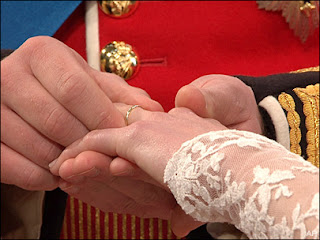My
column in yesterday's Globe was about the AP Stylebook's new food section; reading it took me back to my days editing the food section, back when it had three zones' worth of advertising. (That was then ...) Food, I see, remains a maddening area for copy editors. For instance, AP has
Monterey Jack but lowercase
pepper jack -- same cheese, same Jack,
whoever he was, but one is capped and one is not.
The "French" list was odd, too:
French bread, French toast, French dressing, but f
rench fries, lowercase -- "because it refers to the style of cut, not the nation." Really? I know of French cut (or frenched) green beans, those lengthwise slivers, but I've never heard of french cut (or frenched) potatoes, up or down. (And where does the style of cut come from, if not "the nation"?)
Also, perhaps because I've never used AP style on the job, I was surprised when definitions didn't accurately reflect the entry word's part of speech:
alfresco is called "a meal eaten outdoors," for instance, and
dredge (a verb!) is "a cooking technique in which food is lightly coated with flour." Has this always been AP stylebook style?
Finally, yet more evidence that a stylebook (or dictionary) can't do it all. The photo above ran with my column, with the competing
fil(l)et spellings differentiated in one common way (though not the way AP now does it). That "fillet" o' fish fits the official definition -- "a boneless cut" -- just fine, as far as it goes. But at the fishmonger's and on the menu, that piece of fish is not a fillet; the cross-section serving is commonly known as a steak.


